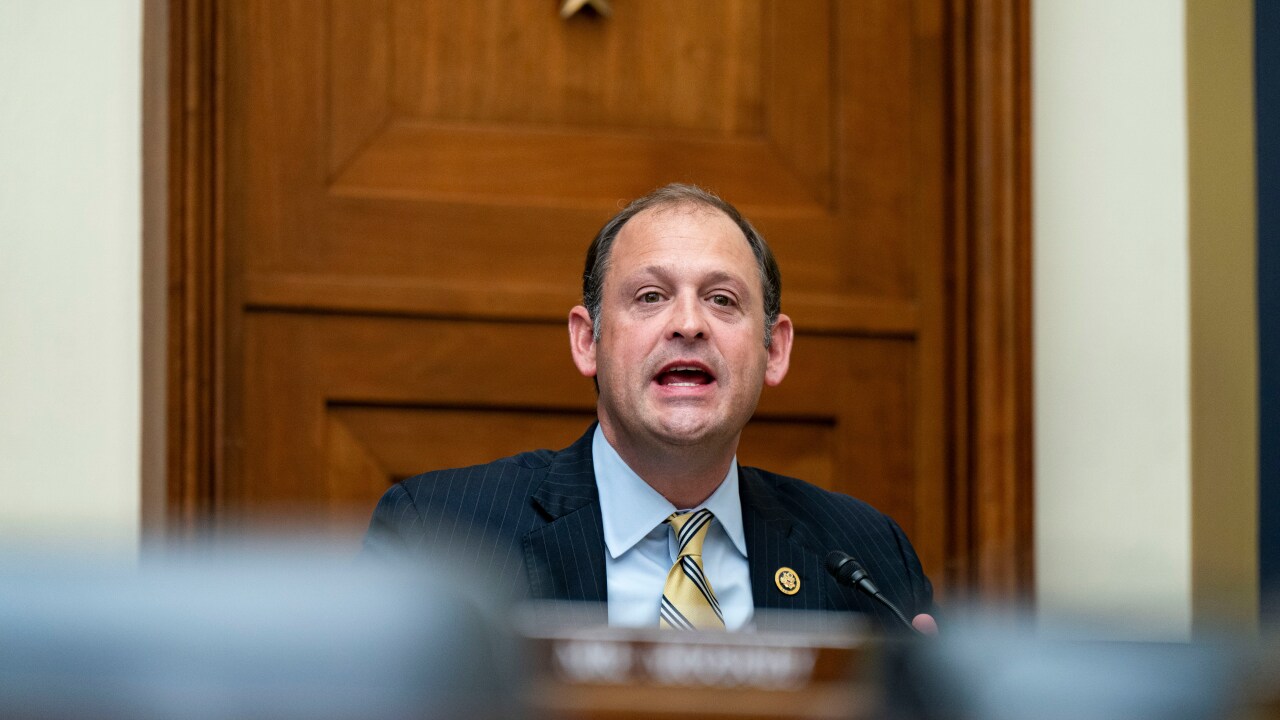
WASHINGTON – The Internal Revenue Service and two community development districts in Florida have recently discussed a possible settlement over a long, ongoing municipal bond tax dispute, but it's unclear if they will be able to agree on anything.
The dispute, which currently focuses on $311.28 million of recreation amenity bonds issued by the Village Center and Sumter Landing Community Development Districts from 1998 through 2005, revolves around whether the CDDs are political subdivisions that can issue tax-exempt bonds.
The case is being closely watched by bond lawyers who have complained the IRS is trying to set new standards for political subdivisions through enforcement rather than public rulemaking.
Currently on the table is a reluctant verbal offer by the two CDDs to pay the IRS a total of $300,000 to end the audits, some of which have ongoing since January 2008, without jeopardizing the tax-exempt status of the bonds.
The offer, described by Janet Y. Tutt, the manager of the Village Center CDD in a recent release, is a counter-offer to the IRS' verbal proposal to close the audits if the two districts paid it a total of $1.5 million, she said.
The $300,000 represents the estimated legal fees the CDDs would have to pay if the IRS rejects their offer, proposes the bonds are taxable, and they appeal the IRS findings to the IRS Office of Appeals, Tutt said.
The CDD boards discussed the IRS offer of a $1.5 million payment during November meetings and rejected it.
The Village Center CDD would have been responsible for two thirds of the payment and the Sumter Landing CDD for one third, Tutt said. The recreation amenity bonds under audit are $246.28 million issued by the Village Center CDD from 1998 through 2004 and $65 million issued by the Sumter Landing CDD in 2005.
The IRS has not made any formal findings with regard to the Sumter Landing CDD, but seems to be including its recreation amenity bonds with those of the Village Center CDD, which has been its primary focus.
"The districts are firm in their belief that the IRS is incorrect in its analysis of the districts' bonds pertaining to this issue," Tutt said in the release. "Based on the strength of the districts' position, the boards of supervisors are very reluctant to agree to any settlement with the IRS. However [they] understand the cost of legal representation and the protracted time and uncertainties to resolve the issue and, as a result, have agreed to offer the IRS the $300,000."
The IRS has not yet responded to the counter-offer, according to Perry Israel, the Sacramento-based lawyer representing the Village Center CDD. Tutt and Israel said there is no timing requirement for an IRS response.
The IRS claims the Village Center CDD is not a political subdivision that can issue tax-exempt bonds because its board is and will always be controlled by a developer rather than publicly-elected officials.
The IRS chief counsel's office formally laid out that position in a technical advice memorandum issued in May 2013. IRS agents followed that up with a Notice of Proposed Issue suggesting the bonds were taxable.
But the Village Center CDD, Israel, the National Association of Bond Lawyers, and the tax-exempt financing committee of the American Bar Association's Taxation Section vigorously oppose the IRS' stance. They say the IRS tried to adopt new standards for political subdivisions in a TAM without any opportunity for public comment and tried to retroactively apply them.
Historically, bond lawyers have found an entity to be a political subdivision if was a division of a state or local governmental unit that was a municipal corporation or that was delegated the right to exercise sovereign powers like eminent domain, taxation or police.
The Village Center CDD told the IRS that it was formed for public purposes as a Florida special-purpose governmental unit and was delegated sovereign powers.
The IRS chief counsel's office issued a memo in June stating that the May 2013 TAM won't be applied retroactively. IRS officials established a priority project to write rules on the definition of a political subdivision that will be open for comment and prospectively effective.
John Cross, an associate legislative tax counsel at the Treasury Department, told NABL members meeting in Chicago in September that the Treasury and IRS were considering writing rules that include "a possible objective governmental control standard" and other principles beyond the sovereign powers analysis.





